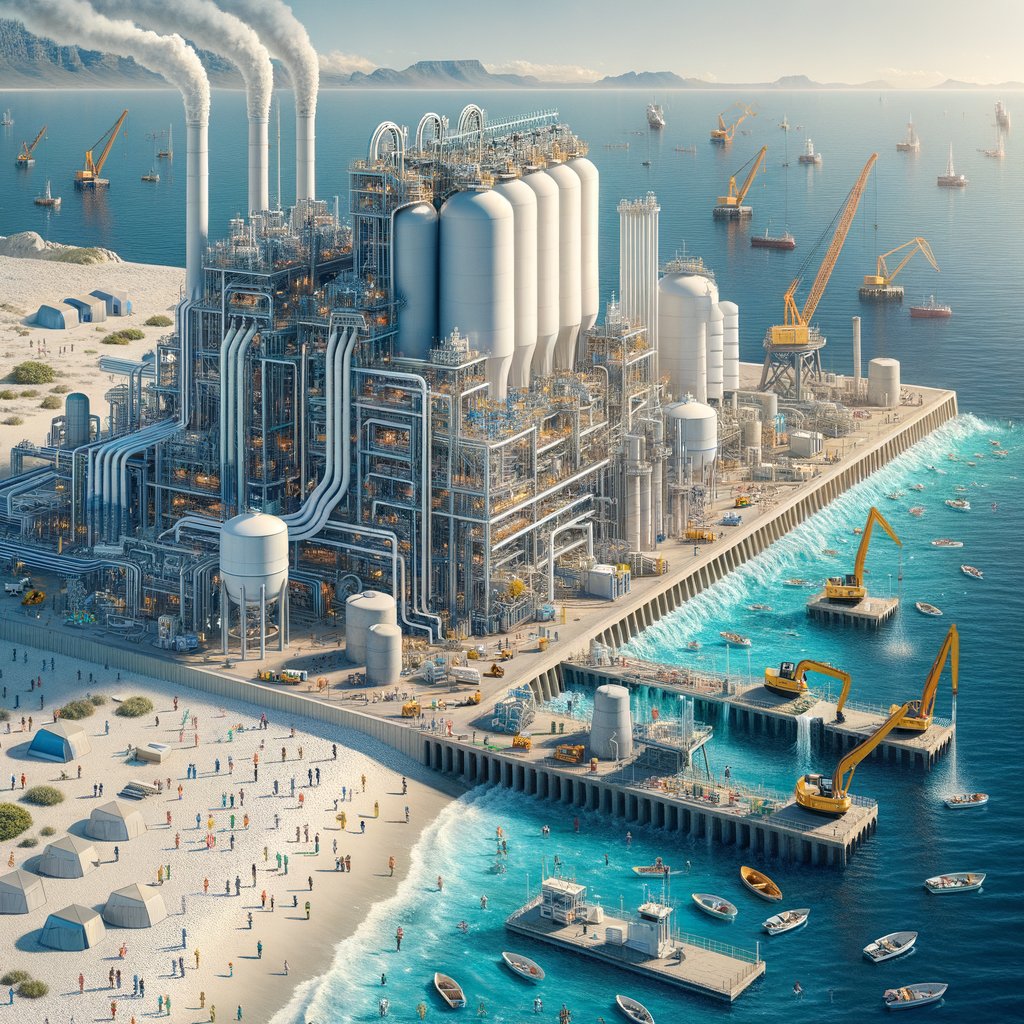Image created by AI
Cape Town's Desalination Efforts: A Ripple of Hope Amidst Waves of Concern
In an effort to combat water scarcity, the City of Cape Town has embarked on an ambitious R5 billion desalination project that has stirred a whirlpool of mixed reactions from residents and environmental experts. Slated to be built in Paarden Eiland, a prime location near the coast, this project is part of a broader initiative, the New Water Programme, aimed at bolstering the city’s water reservoirs amid growing demand.
The plan for the desalination plant is to harness technological innovations and produce up to 70 million litres of potable water each day. This substantial output is eyed as a pivotal solution to the persistent droughts that have plagued the region, often pushing the city to the brink of a 'Day Zero' water crisis.
However, skeptics of the project are voicing significant concerns. The primary worry ties back to the environmental impact of desalination. Experts point out that the site’s proximity to a polluted harbour and contaminated rivers might compromise the quality of the water being processed. This could introduce more pollutants into the ecosystem, particularly marine life, due to the discharge of concentrated brine—a byproduct of desalination—back into the ocean.
Furthermore, critics argue that the financial implications of desalinating seawater, one of the costliest methods to procure potable water, could potentially drain the city's coffers, raising water tariffs and placing additional economic pressure on residents.
Amidst these rippling concerns, proponents like Professor Anthony Turton argue that desalination is a necessary stride toward securing Cape Town’s water independence. With climate unpredictability on the rise and traditional water sources being stretched thin, desalination, they suggest, could offer a consistent and controlled water supply that could very well prevent future water shortages.
The City Council is in the midst of conducting a comprehensive feasibility study, ensuring all scientific and environmental standards are met before moving forward. They have also opened the platform for public commentary until March 3, encouraging transparency and community involvement in decision-making processes.
As the debate surges on, it becomes clear that while desalination might not be a perfect solution, it could be an essential component in a multifaceted approach to water sustainability in Cape Town. With the city’s history of water management crises, the exploration of new technologies and sources like desalination could pave the way for a more resilient future.










